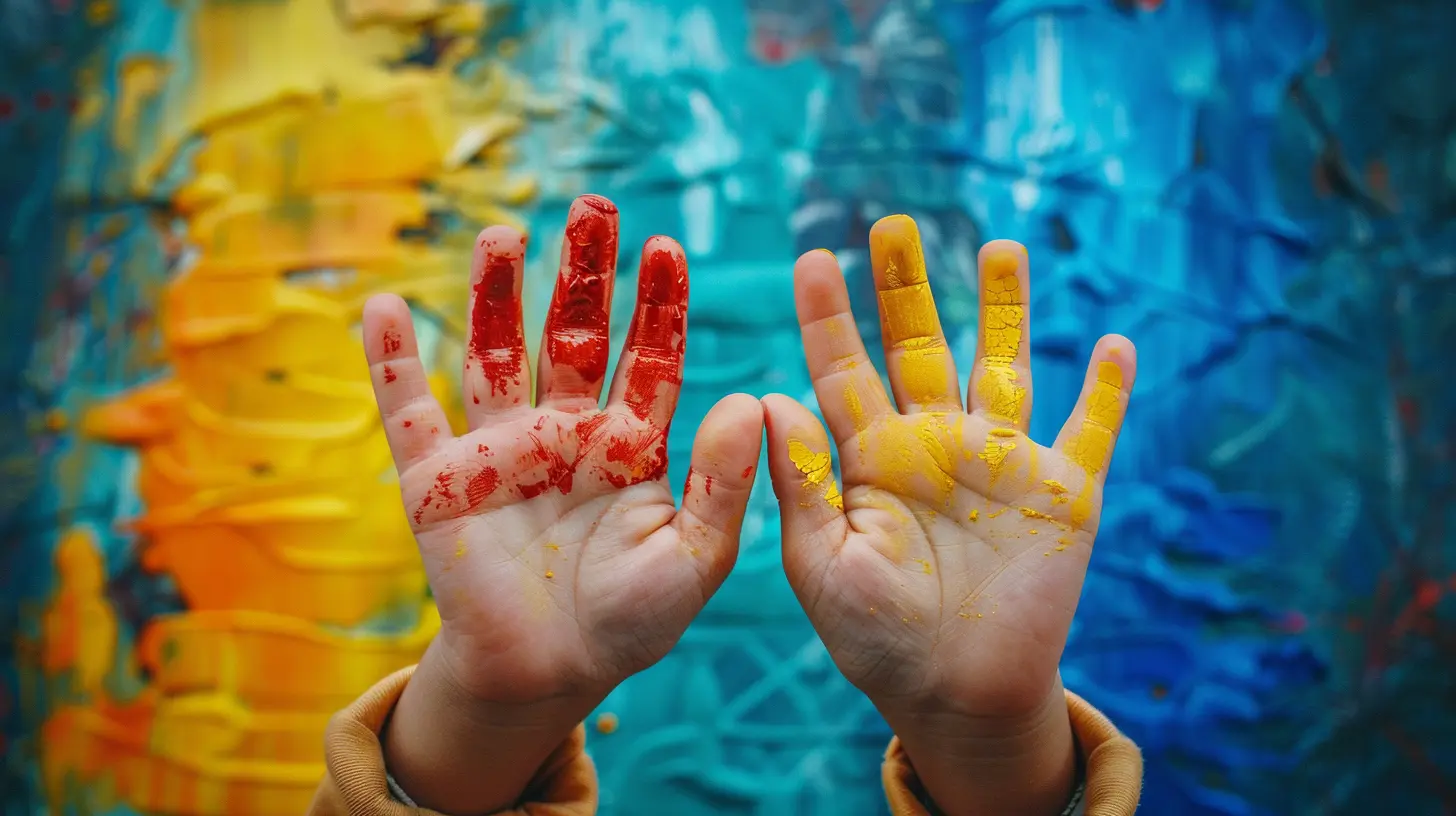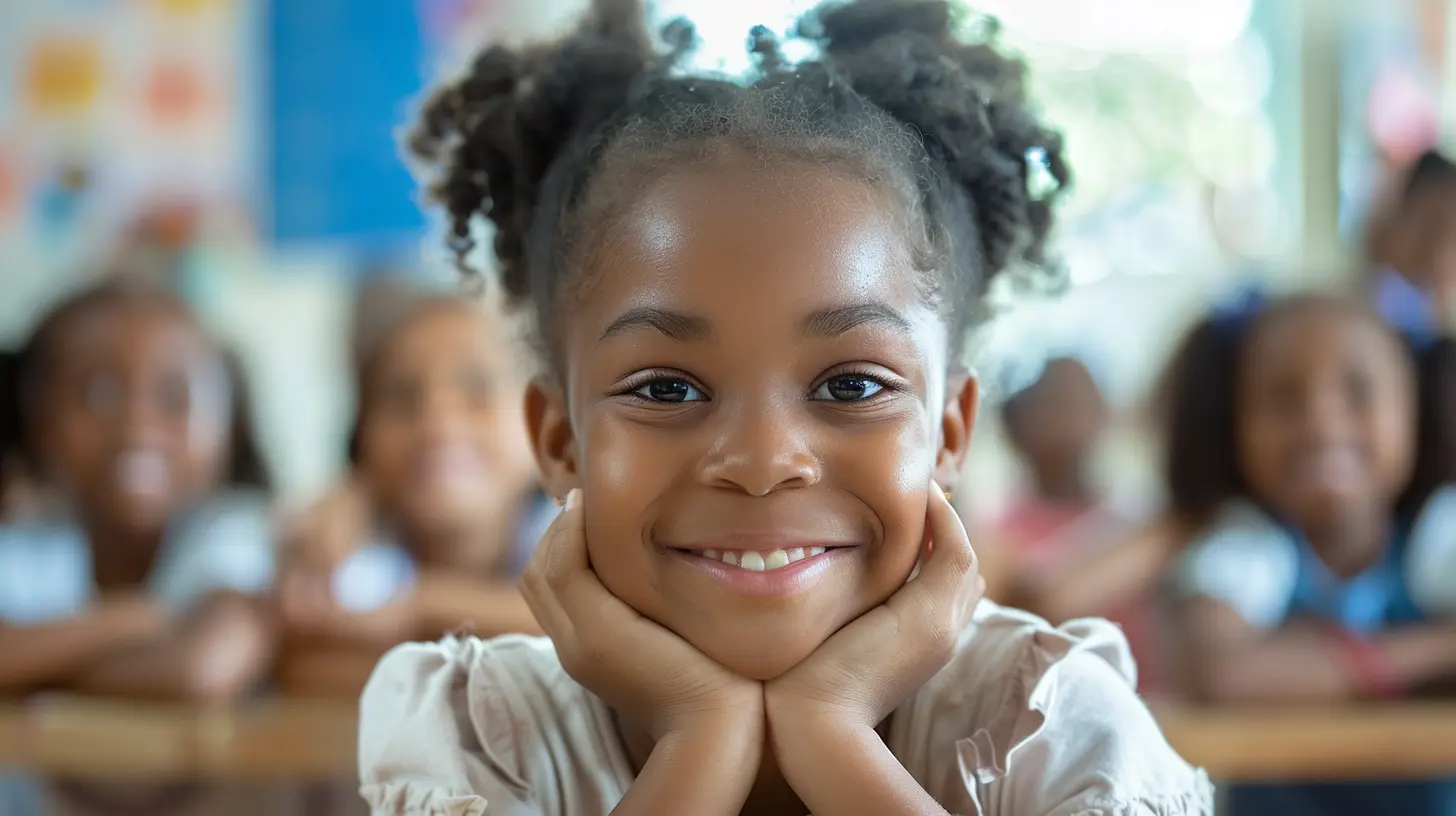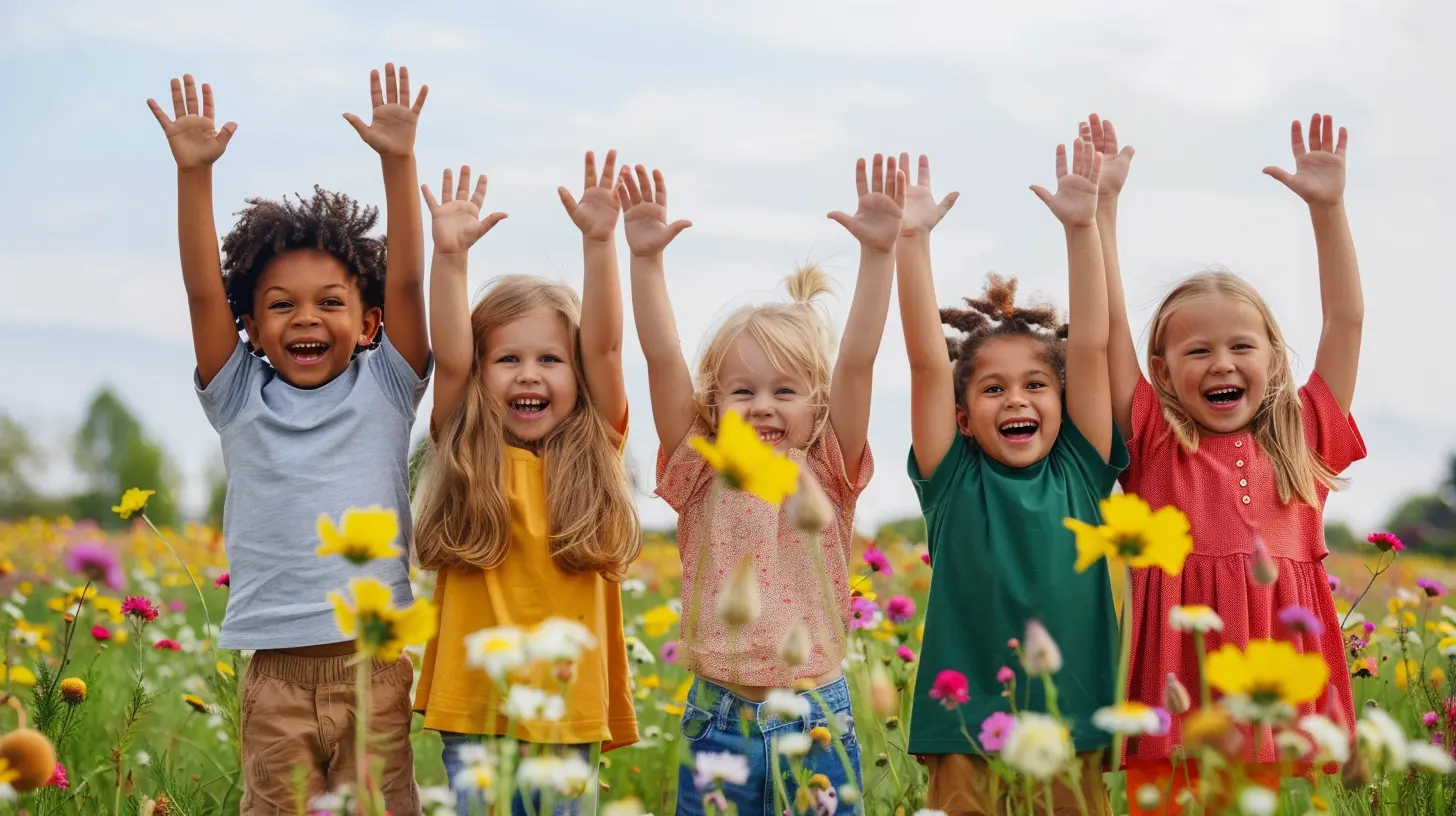Why Self-Gratitude Matters: Helping Kids Appreciate Who They Are
18 August 2025
Introduction
Imagine a world where kids wake up every morning, look in the mirror, and say, “Wow, I love being me!” Sounds like a dream, right? Well, it doesn’t have to be! Teaching kids the art of self-gratitude can be one of the most powerful gifts we can give them.
In a world filled with comparison traps and unrealistic expectations (thanks, social media), kids often struggle to see their own worth. But what if we could help them appreciate who they are, quirks and all? Let’s talk about why self-gratitude matters and how we can sprinkle it into their daily lives like confetti! 🎉 
What Exactly Is Self-Gratitude?
We all know the concept of gratitude—being thankful for things like a warm hug, a delicious meal, or a sunny day. But self-gratitude? That’s about being thankful for who you are.Think of it as the emotional equivalent of giving yourself a high-five. It’s recognizing your strengths, valuing your uniqueness, and embracing even the “weird” parts that make you, well, you!
For kids, this means appreciating their talents, their personalities, and even their little quirks—the way they laugh at their own jokes, their love for drawing dinosaurs in pink, or their ability to build a LEGO tower taller than your coffee mug. 
Why Self-Gratitude Is a Game-Changer for Kids
1. Boosts Confidence Like a Superhero Cape
When kids practice self-gratitude, they become more confident in themselves. Instead of focusing on what they lack, they start appreciating what they have. It’s like giving their self-esteem a daily dose of vitamins!A child who says, “I love how kind I am!” is more likely to carry themselves with confidence than a child who constantly worries about not being as smart or as fast as someone else.
2. Builds Resilience Against Life’s Ups and Downs
Life isn’t always sunshine and rainbows. Kids will face setbacks—losing a game, struggling with schoolwork, or dealing with friendship drama. But when they’re grateful for themselves, they’re less likely to crumble under pressure.Self-gratitude acts like a shield, helping them bounce back quickly instead of dwelling on failures. It teaches them to see the good within themselves, even when times are tough.
3. Lowers Anxiety and Stress Levels
Let’s face it—kids today deal with a lot. School, peer pressure, extracurricular activities, and let’s not forget the never-ending homework.Teaching kids to be grateful for who they are helps them shift from self-criticism to self-acceptance. It reduces that inner pressure to be perfect and encourages them to embrace their imperfections. And honestly? That’s a gift that keeps on giving.
4. Encourages a Positive Mindset
Ever noticed how kids who appreciate themselves tend to see the world differently? They’re the ones who can laugh off mistakes, celebrate their progress, and find joy in small moments.Self-gratitude trains the brain to focus on the good rather than dwell on the bad. And once they develop that habit? They’ll carry it with them into adulthood like a lifelong superpower. 
How to Teach Kids the Magic of Self-Gratitude
Okay, so we know self-gratitude is essential. But the real question is—how do we actually teach it to kids? Here are some fun and practical ways to sprinkle self-love into their daily routine.1. Start a "Self-Gratitude Journal"
Journaling is a fantastic way for kids to develop self-awareness and appreciation. Have them write (or draw) one thing they love about themselves each day.It could be something as simple as:
- “I love how I helped my friend today.”
- “I’m proud of how I didn’t give up on that tough math problem.”
- “I like how I make people laugh with my silly jokes.”
Over time, this practice will help them develop a habit of acknowledging the amazing things about themselves.
2. Mirror Talk: Say It Out Loud!
Ever tried looking in the mirror and saying something nice to yourself? It might feel a little weird at first, but trust me—it works.Encourage kids to stand in front of the mirror and say aloud one thing they appreciate about themselves. It could be their creativity, kindness, or even their ability to whistle (because, let’s be honest, that’s a skill!).
3. Create a "Superpower List"
Ask your child, “What are your superpowers?”—and no, we’re not talking about flying or invisibility (though that would be cool).Have them make a list of things they’re good at or qualities that make them special. Are they a great listener? A fast runner? A master at spelling tricky words? A super-duper hug giver?
This activity helps them recognize their strengths and appreciate their unique abilities.
4. Encourage Gratitude Conversations
Make self-gratitude a topic of conversation at the dinner table.Instead of just asking, “What are you grateful for today?” try asking, “What’s something you’re proud of about yourself today?”
This small shift can work wonders in helping kids recognize their own value. Plus, it creates a positive family habit that reinforces self-appreciation.
5. Lead by Example
Let’s be real—kids learn way more from what we do than from what we say. If they see you practicing self-gratitude, they’ll be more likely to adopt it themselves.Try saying things like:
- “I’m really proud of how I handled that tough situation today.”
- “I love how creative I was with dinner tonight!”
- “I’m grateful for my sense of humor—it helps me get through tough days.”
Hearing you appreciate yourself normalizes self-love and teaches them that it’s okay to celebrate who they are.
6. Use Affirmation Cards
Affirmations are powerful tools for self-gratitude. Create a deck of affirmation cards with statements like:- “I am kind and thoughtful.”
- “I love the way I think and create.”
- “I am enough just as I am.”
Kids can pick a card each morning and repeat the affirmation throughout the day. It’s a small action that can make a big difference in shaping their self-perception. 
Final Thoughts
Helping kids appreciate who they are isn’t about making them arrogant or overconfident—it’s about helping them build a solid foundation of self-worth.When kids practice self-gratitude, they see themselves in a positive light, grow into resilient individuals, and develop a mindset that will serve them for life.
So let’s hand them the mirror, the journal, and all the self-love tools they need. Because, at the end of the day, every child deserves to look at themselves and say, *“I love being me.
all images in this post were generated using AI tools
Category:
Teaching GratitudeAuthor:

Max Shaffer
Discussion
rate this article
1 comments
Lily Ramos
What a wonderful reminder! Teaching our kids self-gratitude fosters confidence and happiness. Let’s celebrate their uniqueness and help them shine! 🌟
August 24, 2025 at 2:53 AM

Max Shaffer
Thank you! Celebrating their uniqueness is key to building confidence and happiness in our children. 🌟


